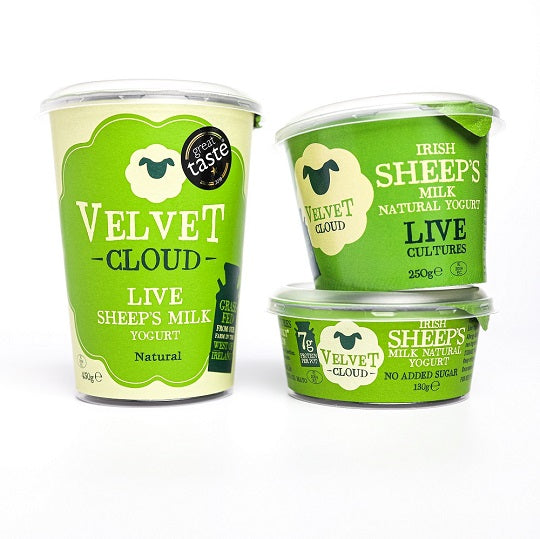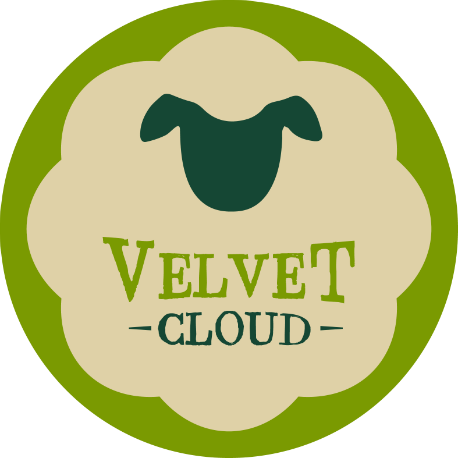Sheeps Milk Natural Health Benefits - New Scientific Research
This week, I came across a brilliant new piece of research just published in a scientific journal. It’s a thorough review of all the current studies on sheep’s milk and its natural health benefits. If you're the type who enjoys a good evidence-based read, here is the full citation:
Flis, Z.; Molik, E.; Ptak, A.; Szatkowski, P. Natural Bioactive Compounds in Sheep Milk: Potential Biomedical Applications. Curr. Issues Mol. Biol. 2025, 47, 456. https://doi.org/10.3390/cimb47060456
I've summarised the main points here and then below given you the abstract and conclusions:
-
Sheep milk contains more protein, fat, vitamins, and minerals than cow or goat milk.
-
It is a rich source of bioactive compounds, including proteins, peptides, fatty acids, vitamins, and minerals.
-
It has higher levels of lactoferrin, CLA (conjugated linoleic acid), and proline compared to cow milk.
-
Lactoferrin in sheep milk has antibacterial, anti-inflammatory, and immune-boosting effects.
-
CLA in sheep milk has been shown in animal and lab studies to reduce fat storage, inflammation, and cancer cell growth.
-
Sheep milk contains bioactive peptides that can inhibit enzymes linked to blood sugar regulation (like DPP-IV and α-glucosidase).
-
Sheep milk provides vitamins A, E, and C, which have known antioxidant and skin-healing functions.
-
It includes minerals like iron, zinc, and copper, important for immune function and wound healing.
-
Hydrogel dressings made with sheep milk components (e.g. lactoferrin and CLA) have been shown in research to accelerate wound healing.
-
Sheep milk is often better tolerated by people allergic to cow milk proteins, due to different protein structures.
-
In animal studies, sheep milk-fed piglets showed better brain development than those fed standard formulas.
-
Fermented sheep milk (like yogurt and cheese) can support gut health by delivering beneficial compounds and microflora.
-
Sheep milk has a higher whey protein content, which is more easily digested than cow milk proteins.
-
CLA and lactoferrin have both been shown (in studies) to influence immune responses and reduce oxidative stress.
-
The composition of casein in sheep milk supports calcium and phosphate transport, important for bone health.
This is not marketing fluff – it’s all peer-reviewed science from researchers in universities and medical labs. It’s great to see what we already know, now being backed by more and more evidence.
Natural Bioactive Compounds in Sheep Milk: Potential Biomedical Applications
Flis, Z.; Molik, E.; Ptak, A.; Szatkowski, P. Natural Bioactive Compounds in Sheep Milk: Potential Biomedical Applications. Curr. Issues Mol. Biol. 2025, 47, 456. https://doi.org/10.3390/cimb47060456
Abstract - Sheep's Milk Health Benefits
Sheep milk is a rich source of bioactive compounds with significant potential in functional foods and biomedical applications. It contains high levels of proteins, peptides, and fatty acids with numerous health-promoting properties for the human body. Key components such as lactoferrin, proline, orotic acid, and conjugated linoleic acid (CLA) support the prevention and treatment of chronic diseases such as diabetes, cardiovascular disease, obesity, cancer, and neurodegenerative disorders. Bioactive peptides from sheep milk regulate blood glucose levels by inhibiting enzymes such as dipeptidyl peptidase-IV (DPP-IV) and α-glucosidase, while conjugated linoleic acid improves lipid metabolism and reduces inflammation. The high-quality proteins in sheep milk are essential for tissue regeneration and maintaining muscle mass, which is particularly beneficial for the elderly and infants who are allergic to cow milk. Recently, there has been an increasing interest in hydrogel dressings enriched with bioactive substances from sheep milk, which support wound healing by supporting collagen synthesis, reducing inflammation, and having antimicrobial properties. Such hydrogels are particularly promising for the treatment of chronic wounds, burns, and diabetic ulcers, making them a valuable tool in regenerative medicine. The aim of this manuscript is to review the current reports on bioactive components of sheep milk and their potential for biomedical applications.
Conclusions Sheeps Milk Health Benefits
Sheep milk is gaining popularity among consumers, especially in the form of cheese and yogurt, which is in line with the growing interest in functional food and the return to traditionally produced high-quality dairy products. Thanks to its unique physicochemical and nutritional properties, sheep milk is a valuable source of natural bioactive substances such as proteins, peptides, fatty acids, vitamins, and minerals. Moreover, it contains high levels of conjugated linoleic acid (CLA), known for its anti-inflammatory and anticancer properties, as well as vitamins A and E, which support immune function and cellular health. The proteins in sheep milk have been associated with various physiological effects, such as antihypertensive, antimicrobial, antioxidant, and immunomodulatory activities. Moreover, compared to cow milk, sheep milk contains a higher concentration of lactoferrin, which has antibacterial properties and supports tissue regeneration, which is extremely important in the treatment of difficult-to-heal wounds. The mentioned bioactive substances of milk have immunomodulatory, anti-inflammatory, and neuroprotective effects, making sheep milk a promising ingredient in the prevention and support of the treatment of lifestyle diseases, including type 2 diabetes, circulatory system diseases, cancers, and neurodegenerative diseases such as Alzheimer’s disease. Compounds present in sheep milk, such as proline, lactoferrin, orotic acid, and conjugated linoleic acid (CLA), which support cognitive functions and tissue regeneration, are particularly important in the context of an aging society. Due to its health-promoting properties, sheep milk is used in the nutrition of the elderly and infants, especially in cases of allergy to cow milk proteins. All this makes sheep milk have great potential in the development of functional foods and therapies supporting the treatment of many chronic and degenerative diseases.




